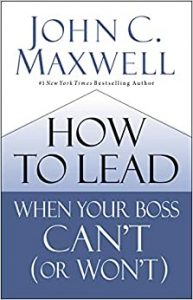A facility officer’s work is never done, whether it is correcting past errors through process improvement, handling today’s “emergency” or other critical issues, or confronting what the future might bring. A facility officer must use every technique available to manage a large and complex organization. The books covered here should prove helpful.
CLIMATE ADAPTATION AND RESILIENCE ACROSS SCALES: FROM BUILDINGS TO CITIES
Nicholas B. Rajkovich and Seth H. Holmes, editors, Routledge, 2022, 256 pp., hardcover ($160), softcover ($40).
 In late March, a daily summary of articles of interest to engineers summarized the recently released National Oceanic and Atmospheric Administration (NOAA) report on climate change. The headline for one set of articles claimed a “dire” warning about climate change based on the report. Looking at each of the articles, none of them suggested anything “dire.” True, the ocean level was predicted to rise 12 in. in approximately 30 years, nearly three times the prior 100-year rate of rise. But 30 years is a long time—longer than many Facilities Manager readers have been working in the industry and longer than many of our employees have been alive. A great deal of construction in higher education and other industries has occurred in 30 years. So how is the issue dire? What does research say about what it will take to deal with climate change?
In late March, a daily summary of articles of interest to engineers summarized the recently released National Oceanic and Atmospheric Administration (NOAA) report on climate change. The headline for one set of articles claimed a “dire” warning about climate change based on the report. Looking at each of the articles, none of them suggested anything “dire.” True, the ocean level was predicted to rise 12 in. in approximately 30 years, nearly three times the prior 100-year rate of rise. But 30 years is a long time—longer than many Facilities Manager readers have been working in the industry and longer than many of our employees have been alive. A great deal of construction in higher education and other industries has occurred in 30 years. So how is the issue dire? What does research say about what it will take to deal with climate change?
There is no doubt that Climate Adaptation and Resilience across Scales is an academic book, as it contains chapters written for researchers and those with an academic focus following a symposium at the University of Buffalo. However, it is also a useful book for facility officers. It presents a logical approach to identifying climate change risks and challenges. It also demonstrates the value of estimates and fuzzy thinking about solving the problems associated with increasing temperatures and more violent weather patterns.
Climate change is not limited to one part of infrastructure, buildings, roads, bridges, sewers, or piers; it affects the entire built environment. Addressing the effects of climate change doesn’t necessarily require new thinking; it requires thinking about what is being done and how it fits within the environment. Does the new building need better insulation and solar shading? What helps the building achieve or get close to net zero? Does the community need better water retention and infiltration? Does the near-shore infrastructure need to be modified to provide service to the community where approximately one-third of the U.S. population resides? If these questions are not answered prior to completion of the project, there will inevitably be problems and a lack of resilience.
The last chapter provides a transcript of a Q&A with contributors and panelists from the symposium. The panelists’ responses to some challenging questions are overall positive—solutions exist. As engineers we need to be optimistic. There is no single solution; there are sets of solutions that require attention and care when applied to the appropriate conditions. There is hope. Rather than being concerned about a “dire” situation, we should be thinking logically and deliberately about our environment and preserving it for the future. Again, while academically focused, Climate Adaptation and Resilience across Scales offers some good news and potential applications.
HOW TO LEAD WHEN YOUR BOSS CAN’T (OR WON’T)
John C. Maxwell, Harper Collins, 2005, 150 pp., hardcover ($13).
 There are hundreds—if not thousands—of books on leadership; some have been reviewed here. APPA often brings in speakers from bureaus or from industry to present on leadership and to provide inspiration as well as helpful advice. About 25 years ago, Scott Adams, the creator of Dilbert, spoke to APPA conference attendees and entertained them with his perception of business leaders and situations that aren’t good or are downright bad. The daily Dilbert strip provides clear examples of bad leadership or difficult people at work.
There are hundreds—if not thousands—of books on leadership; some have been reviewed here. APPA often brings in speakers from bureaus or from industry to present on leadership and to provide inspiration as well as helpful advice. About 25 years ago, Scott Adams, the creator of Dilbert, spoke to APPA conference attendees and entertained them with his perception of business leaders and situations that aren’t good or are downright bad. The daily Dilbert strip provides clear examples of bad leadership or difficult people at work.
Bad leadership provides an opportunity to laugh at the situation when viewed from the outside. Unfortunately, those who are in the situation need more than humor to deal with it. Addressing that scenario, John Maxwell, another APPA keynote speaker, wrote How to Lead When Your Boss Can’t (Or Won’t). It’s a relatively small book, almost pocket size and very readable.
There are six chapters; each contains several major points, and almost all of them are positive actions. Within each of the major points are several small steps or actions one can take to provide leadership to a portion of the organization or to support the boss. These are all actions that will make the situation better either for the individual’s part of the organization or for the organization overall. While making things better for oneself may seem selfish, these recommendations are really focused on getting to a state of mind to deal with the situation. It’s good advice, because dealing with difficult people is inevitable and far superior to the alternative.
How to Lead is one of many books on leadership, but it is focused, brief, and a good reference. It leaves one with the same positive feeling experienced after listening to John Maxwell himself—but reading the book is cheaper, and it’s readily available. It’s one more book that many APPA members should consider adding to their personal library.
Ted Weidner is professor of engineering practice at Purdue University, West Lafayette, IN, and consults on facilities management issues primarily for educational organizations. He can be reached at [email protected]. If you would like to write a book review, please contact Ted directly.
Bookshelf
Book reviews on current publications relevant to the profession, trends, and working environment of facilities and educational managers and professionals. To contribute a book review, contact Ted Weidner, field editor of this column.
See all Bookshelves.


